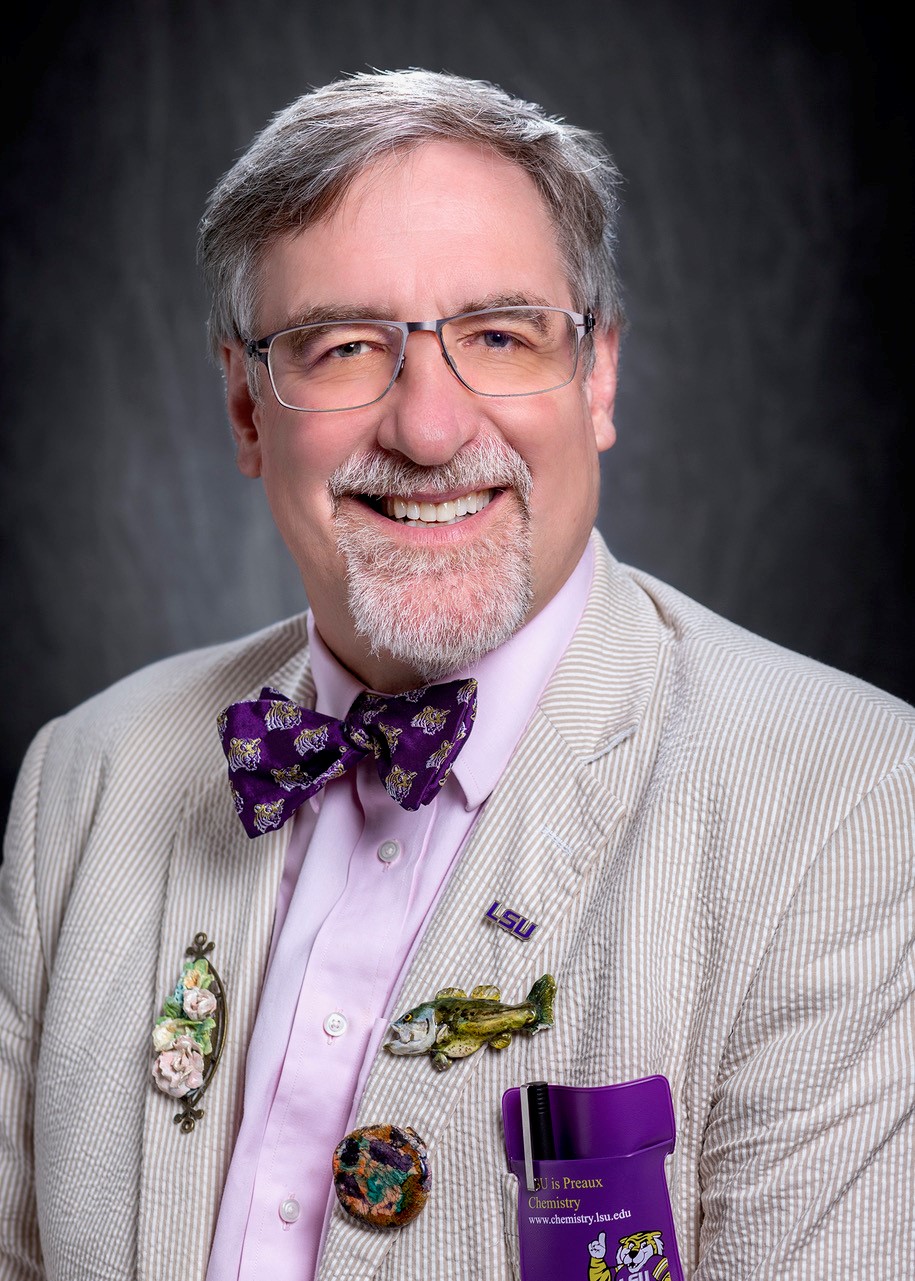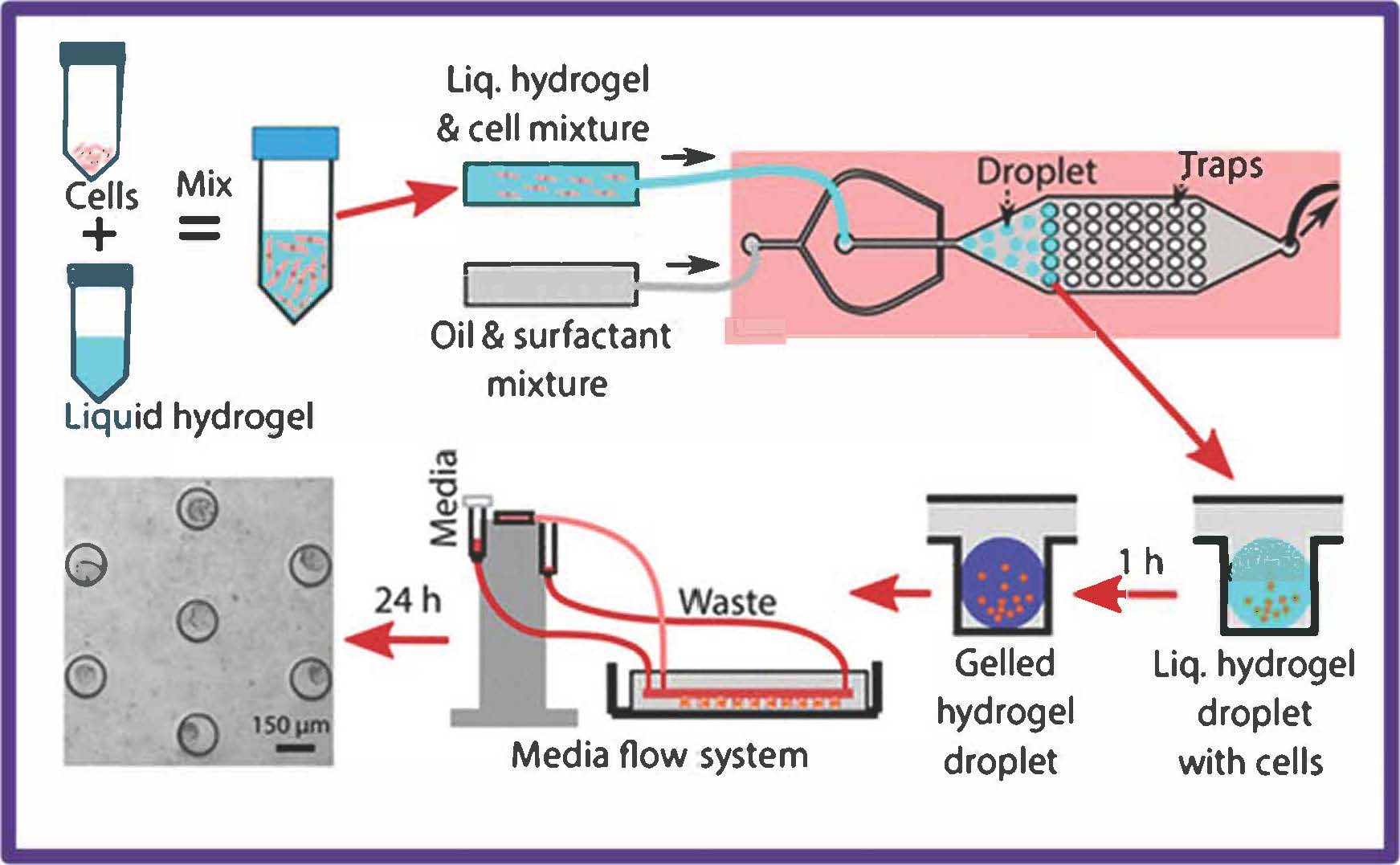LSU’s New 3D Tumor Cell Culturing System Could Accelerate Breast Cancer Research, Treatment
August 20, 2025

John Pojman
An LSU-created system for growing breast cancer tumors mimics the way tumor cells grow and interact to drive drug resistance, offering scientists a faster and more effective way to test new cancer treatments.
The patented 3D culturing system allows cancer cells to organize themselves and behave the same way they would in a tumor, said Adam Melvin, a former LSU associate professor of chemical engineering and co-inventor. The system represents a big advance over the 96-well plates -- flat trays with multiple “wells” that serve as test tubes -- commonly used in drug discovery.
“The problem with using well plates is that the cancer cells form loose attachments. The cells just huddle together like fire ants trying to survive a flood,” Melvin said. “Sometimes the growths are so large that the drug being tested can’t reach the interior cancer cells.
“Our technology is different in that we go to a much smaller scale. Our system allows us to control the size and shape of the cells’ formation. We grow our own little tumors.”
The easy-to-use culturing system allows researchers to employ a single device to grow hundreds of microtumors and test each of them against a drug.
“It’s like the difference between assigning individual grades to each person in a 300-person class or giving everyone the class average,” Melvin said.
The scientists worked with LSU’s Office of Innovation & Technology Commercialization to patent their discovery. Their invention enters a rapidly growing field as pharmaceutical and biotech firms scramble to create bioengineered human disease models that can overcome drug candidate failure rates of 90 percent or more. Some estimates placed the global 3D cell culture market at $1.9 billion in 2022, with demand expected to soar to $10 billion in 2032.
The LSU cell culturing system combines advances in microfluidic and hydrogel technology. The hydrogel imitates the material that surrounds and supports cancer cells in body tissue and serves as a scaffold for growing the cells. The LSU system differs from commonly used biologically derived hydrogels like collagen, which require expensive processing techniques.
 “The LSU system features a unique hydrogel, made with inexpensive, off-the-shelf resins,”
said co-inventor John Pojman, chair of the LSU Department of Chemistry. “However,
the cost difference isn’t as important as the system’s ability to grow actual tumor
replicas in an environment that more closely resembles what happens inside the body
than cells grown in well plates.”
“The LSU system features a unique hydrogel, made with inexpensive, off-the-shelf resins,”
said co-inventor John Pojman, chair of the LSU Department of Chemistry. “However,
the cost difference isn’t as important as the system’s ability to grow actual tumor
replicas in an environment that more closely resembles what happens inside the body
than cells grown in well plates.”
The LSU hydrogel also offers another major advantage. It is temporary, like the wooden forms used in casting concrete sidewalks. Once the concrete solidifies, the form is removed. In the cell culturing system, once the cancer cells form and organize, the hydrogel degrades, leaving only the tumor.
With other systems, researchers must either add a reagent, or chemical compound, to dissolve the hydrogel or leave the cancer cells suspended in the hydrogel, like fruit cocktail trapped in gelatin.
Melvin and Pojman said their technology has also drawn interest from researchers who study other diseases, including brain, lung and pancreatic cancer. Researchers have even asked about using the system to grow cells from a person’s ear to study deafness.
“This new technology could revolutionize cancer research and drug discovery,” said Robert Twilley, LSU vice president for research and economic development. “The 3D cell culturing system represents a significant advance in understanding the complexities of breast cancer and developing more effective treatments, a priority of LSU’s Scholarship First Agenda.”
About LSU’s Office of Innovation & Technology Commercialization
LSU’s Office of Innovation & Technology Commercialization (ITC) protects and commercializes LSU’s intellectual property. The office focuses on transferring early-stage
inventions and works into the marketplace for the greater benefit of society. ITC also handles federal invention reporting, which allows LSU to receive hundreds of millions of dollars each year in federally funded research, and processes confidentiality agreements, material transfer agreements, and other agreements related to intellectual property.
For licensing inquiries, contact techlicensing@lsu.edu